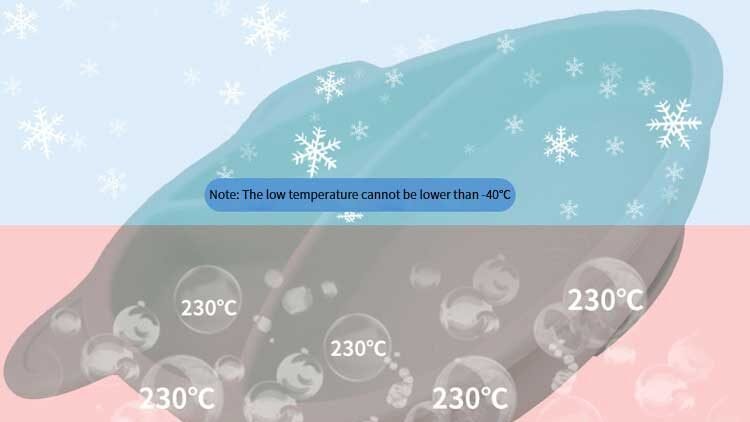Mealtime with little ones often turns into a mess—but the right material can make all the difference in supporting safe, independent eating.
Silicone offers durability, safety, and flexibility that help babies learn self-feeding skills confidently, while giving parents peace of mind and easy cleanup.
Choosing what your baby eats with is just as important as what they eat. Let’s explore how silicone makes self-feeding safer, easier, and more fun—for both babies and parents.
Why Is Silicone a Safer Material for Baby Products?
Sharp edges and toxic materials are the last things you want near your baby. Safety must come first.
Silicone is non-toxic, soft, and free of harmful chemicals, making it one of the safest materials for baby self-feeding items.

Unlike plastic or metal, food-grade silicone does not leach chemicals like BPA, phthalates, or lead. It’s soft enough to protect sensitive gums and tough enough to resist biting or pulling. I’ve seen how relieved parents feel when they learn their baby is chewing on something that’s genuinely safe.
What Makes Silicone Safer?
| Feature | Safety Benefit |
|---|---|
| BPA-Free | Prevents hormone disruption |
| Soft Texture | Gentle on gums and teeth |
| No Sharp Edges | Reduces injury risk |
| Heat Resistant | Safe for warm food and sterilization |
| Chemically Stable | Doesn’t degrade or release toxins over time |
These qualities build trust—not just in the material, but in your overall feeding setup.
How Does Silicone Support Motor Skills Development?
Self-feeding is more than just eating—it’s an important developmental milestone.
Silicone tools encourage babies to grip, scoop, and bite, helping them strengthen fine motor skills in a safe and effective way.

Babies are naturally curious. They want to touch, squeeze, and mouth everything. That’s why the flexibility of silicone works so well. It bends without breaking, allowing babies to practice gripping without frustration. I often recommend silicone spoons or suction bowls for this reason—they build confidence and coordination.
Developmental Benefits of Silicone Self-Feeding Tools
| Tool Type | Development Skill Supported |
|---|---|
| Silicone Spoon | Hand-to-mouth coordination, wrist control |
| Suction Plate | Arm movement, pincer grasp |
| Textured Teether Spoon | Sensory exploration, chewing practice |
| Grip-Friendly Cup | Hand stability, oral-motor control |
With regular use, babies not only improve their eating habits but also get a head start on key physical and cognitive skills.
Is Silicone Durable Enough for Daily Baby Use?
Babies drop things. A lot. And not every material survives the test.
Silicone is extremely durable—it withstands daily use, rough handling, and frequent cleaning without breaking or losing shape.
When I test new products, I drop them, twist them, microwave them, and run them through the dishwasher. Silicone passes every time. Unlike plastic that cracks or metal that dents, silicone bounces back. That kind of durability means fewer replacements and more value for families.
Why Durability Matters
Durable products reduce waste, save money, and ensure consistency for your child. You don’t have to worry about whether today’s spoon is slightly different from yesterday’s. The texture, shape, and feel remain the same—and that helps babies build feeding habits with confidence.
Is Silicone Easy to Clean After Mealtime?
Mealtime can be messy. And not every parent has the time—or patience—to hand scrub every item.
Silicone is naturally non-stick, dishwasher-safe, and stain-resistant, making cleanup quick and easy after every meal.

One of my favorite things about silicone is how it cleans. Even when pureed carrots or thick oatmeal dries on it, a simple rinse or a dishwasher cycle gets it looking brand new. This helps keep things hygienic without adding stress to your routine.
Cleaning Advantages of Silicone
| Feature | Cleaning Benefit |
|---|---|
| Non-Stick Surface | Food doesn’t cling, even after drying |
| Dishwasher Safe | Can be cleaned with other dishes |
| Stain Resistant | Maintains original color over time |
| Quick Drying | Doesn’t absorb water or retain odor |
This means fewer scrubbing sessions and more time for what really matters—being with your little one.
Conclusion
Silicone feeding tools are safe, durable, development-friendly, and easy to clean—making them an ideal choice for baby-led self-feeding.